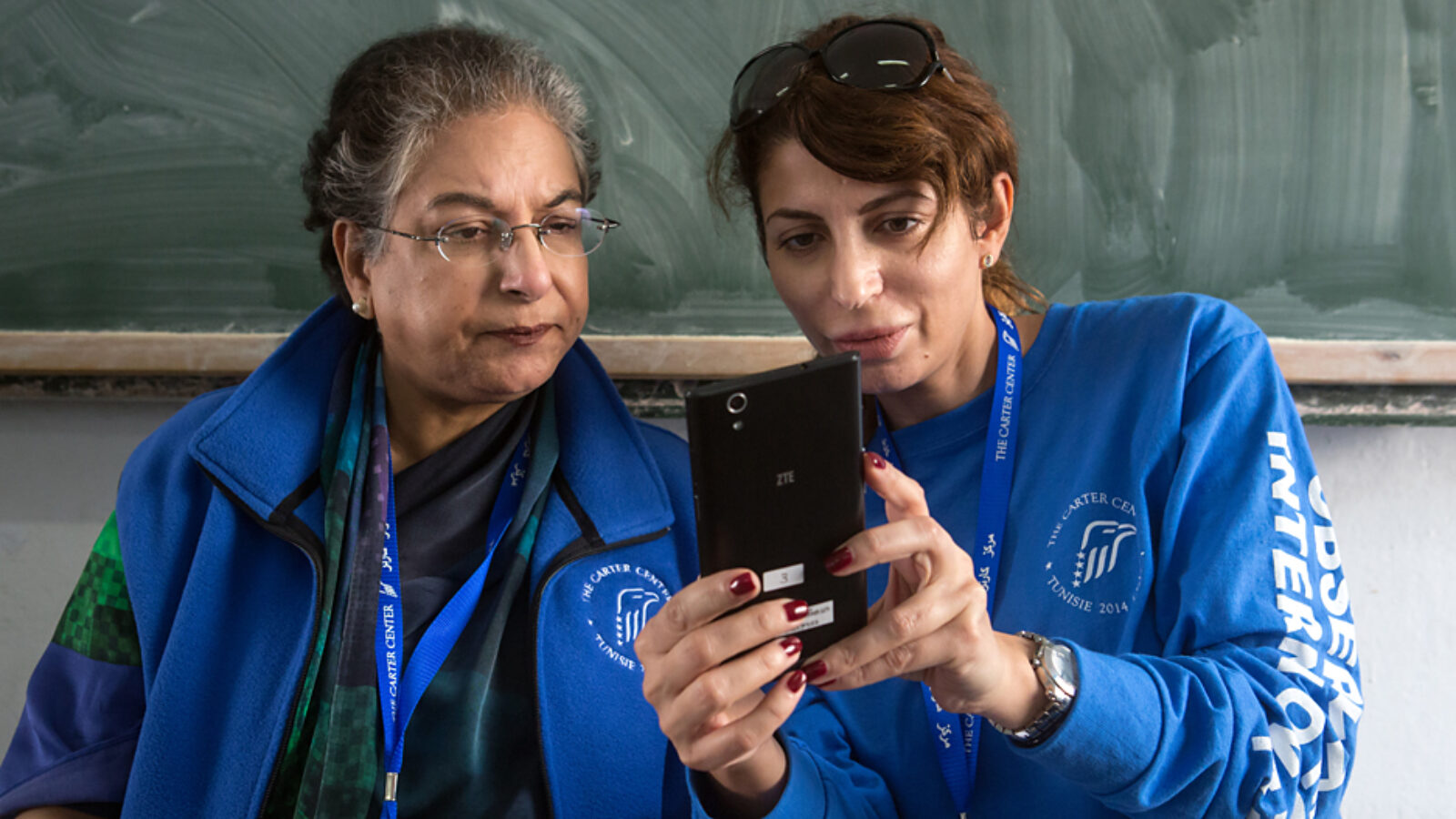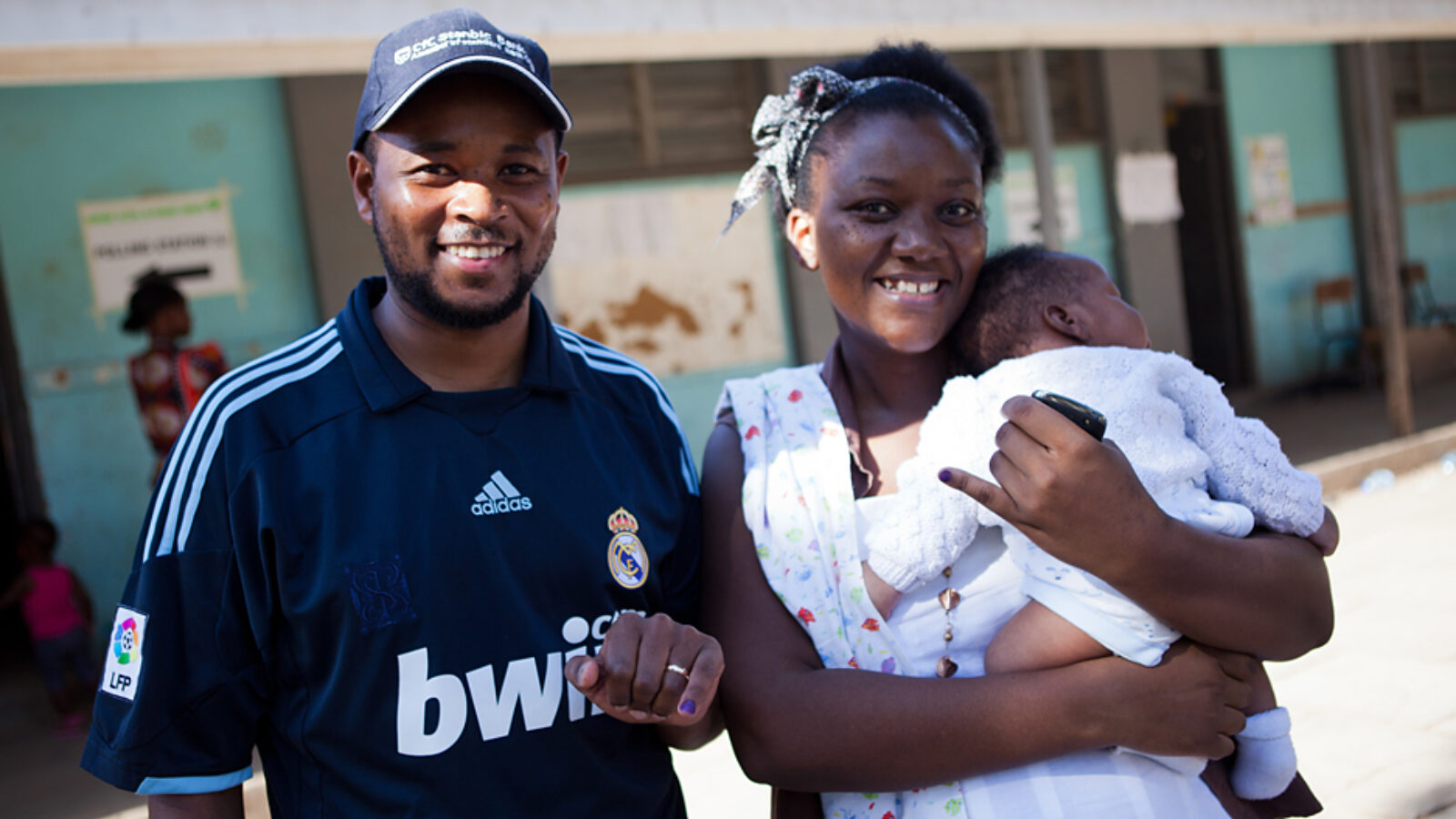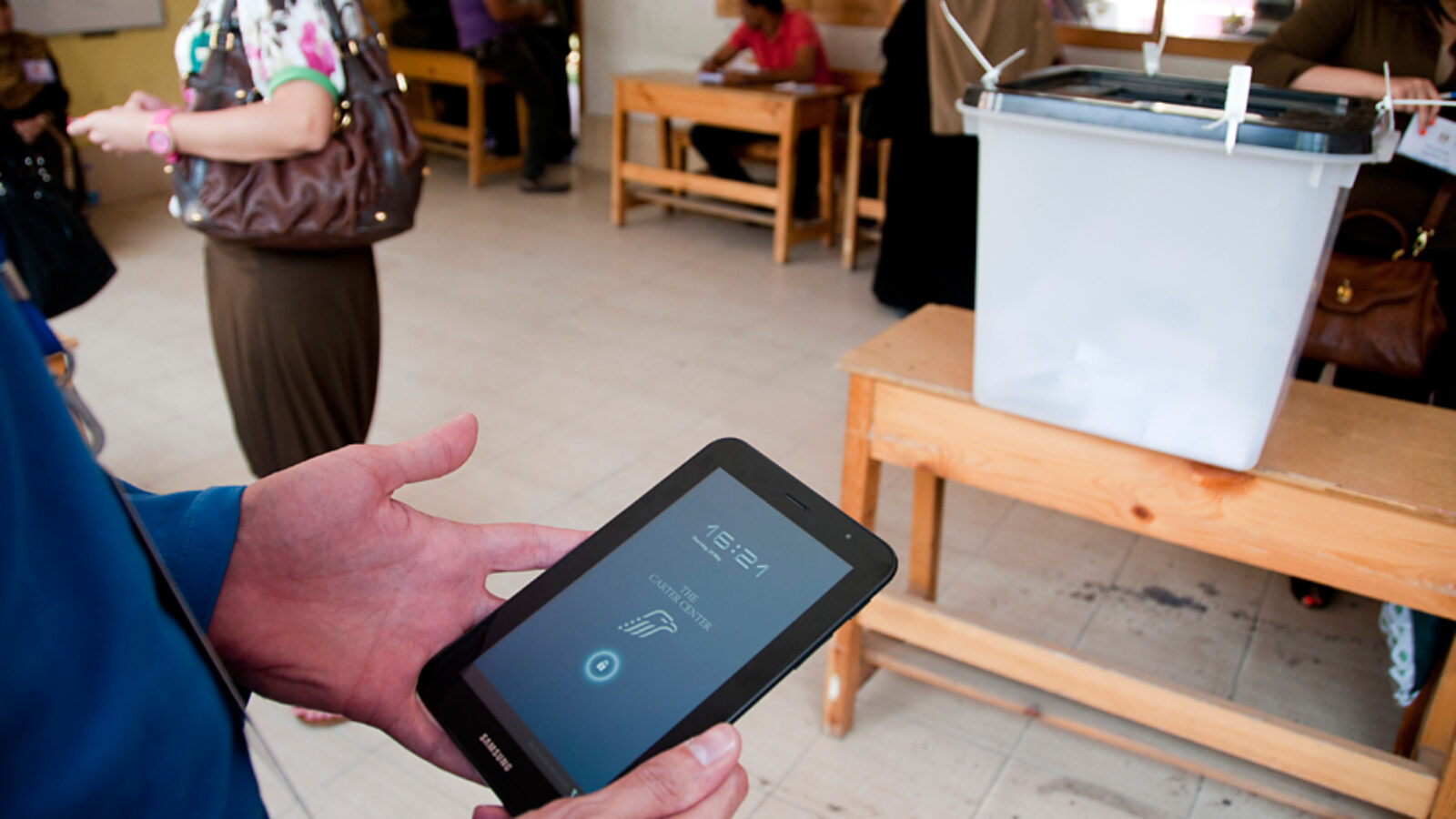Carter Center Slideshow: Technology Drives Faster Election Notes
Events can move quickly on election day, but The Carter Center has developed the technology to stay on top of them.
For decades, election observers used paper checklists to assess conditions at polling places. They would mark boxes asking whether the voting location opened on time, whether all the poll workers were present, whether the ballot box was shown to be empty before voting began, whether the environment outside was peaceful, and so forth. At the end of the day, all the observers would return to Carter Center election headquarters and submit their checklists or dictate their data over the phone. Then the slow process of collecting and crunching all the data would begin. The process could take a full day or more to complete, and even then analysis of trends was preliminary at best.
But that’s changed now. ELMO (short for Election Monitoring) is a Carter Center created electronic data collection and analysis system. Since its introduction in 2011, ELMO has gradually rendered paper checklists obsolete. Equipped with ELMO, observers can submit their checklist data — with more detail than ever before — to headquarters in real time using touchscreen tablets or smartphones. Computers continuously aggregate the data for staff to analyze.
“The scope of data that we can meaningfully analyze quickly has exponentially increased,” he said.
That speed is important in tense election environments where delays stoke voter suspicion, said Connie Moon Sehat, who leads the ELMO initiative.
“Citizens themselves know about the speed of data, and that has changed their expectations,” Sehat said. “They want more and deeper analysis, sooner.”
Depending on a country’s communications infrastructure, observers using ELMO can send in their data using Internet or wireless connections, or even SMS (text messaging), which is old technology in Silicon Valley but the best available in some parts of the world. Where internet or wireless networks are weak or absent, satellite phones can be used. And there remains the option of saving data on physical media such as memory cards or USB drives.
To use ELMO, Carter Center teams prepare in advance of elections to develop checklist questions, determine the kinds of data that will be needed, and build electronic forms to guide their assessment.
“While election observers always refrain from interfering in the process, if a situation develops for which we want to get information, we can be more dynamic,” Sehat said. “Printed forms required everything to be set in advance. With ELMO, we can actually change what we’re investigating in real time during an election.”
The Carter Center has made ELMO’s technology open source, meaning anyone can use it for free. The command interface is available in English, French, and Spanish; an Arabic version is under development. Election observer forms can be translated into other languages.
ELMO’s data-gathering ability could be adapted for other types of projects, including those for monitoring human rights abuses or mapping armed conflicts; health programs tracking the incidence of diseases and the progress of mass drug administration; and environmental groups tracking animal populations or pollution sources.
In Burundi, civil society groups are conducting a pilot program using ELMO to collect data on the human rights environment. Freedom House, an international nongovernmental organization, plans to use ELMO technology in partnership with The Carter Center to help protect human rights defenders in the Democratic Republic of the Congo.
“It’ll be interesting to see where it goes in the next few years,” Sehat said.
Global Impact Starts with You
Your support sustains the Carter Center's mission of waging peace, fighting disease, and building hope around the world.




